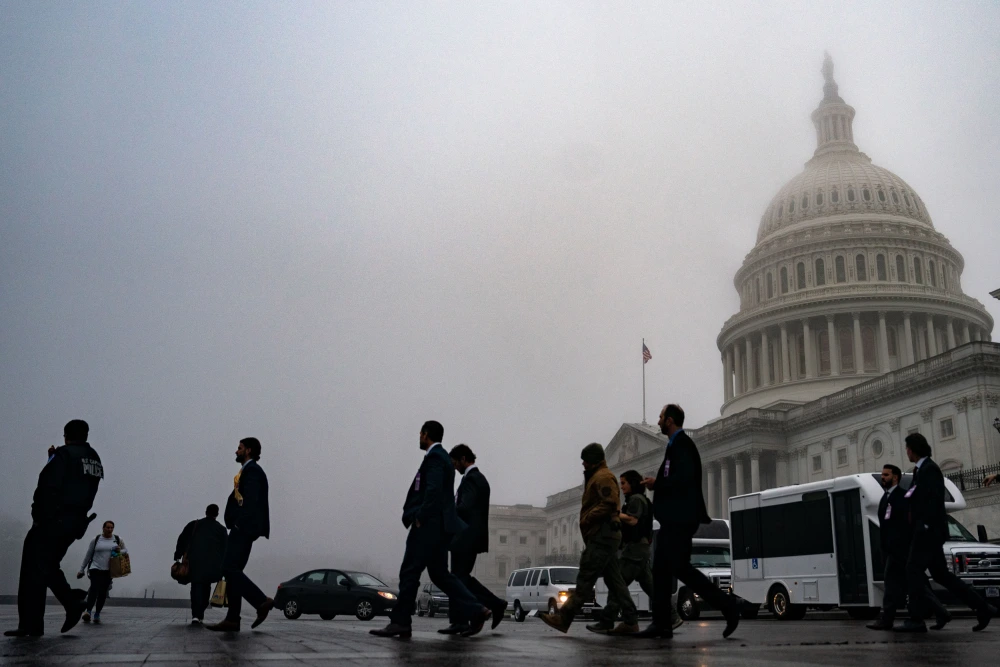WASHINGTON — Congressional leaders on Tuesday evening released the text of a short-term bill to keep the federal government open until March 14, rolling it out just days ahead of a key deadline to prevent a shutdown and after numerous delays.
Funding expires at the end of Friday, when the House and the Senate hope to adjourn for the Christmas, Hanukkah and New Year’s holidays.
The 1,547-page bill includes $100.4 billion for disaster relief funding to address damage caused by hurricanes Helene and Milton in places like western North Carolina and Florida. That was roughly what President Joe Biden had requested of Congress.
It also includes $10 billion in economic assistance for farmers, a one-year extension of the farm bill and a provision that would reauthorize a Department of Homeland Security program allowing federal agencies to coordinate and counter threats from drones, given public concern about recent sightings.
In addition, the continuing resolution, or CR, includes a separate provision to give control of Robert F. Kennedy Memorial Stadium to Washington, D.C., which would allow the city to negotiate bringing the NFL’s Commanders back to the district.
Lawmakers have mere days to prevent a government shutdown ahead of the holidays, putting pressure on the Republican-led House to break its rule requiring 72 hours between releasing text and voting on a bill. And the Democratic-run Senate would need unanimous agreement to skip procedural hurdles and pass it in time.
The legislation would throw a messy new shutdown deadline into President-elect Donald Trump’s first 100 days in office.
The move carries ups and downs for Republicans, who will seize control of the White House and the Senate in January, in addition to maintaining a narrow House majority.
On one hand, the GOP’s “trifecta” in 2025 will give it more leverage to shape the contours of a full funding deal next year. Government funding is subject to the Senate’s 60-vote threshold, so Republicans would still need Democratic support to pass it.
There’s also a benefit for House Speaker Mike Johnson, R-La., in punting difficult spending decisions beyond Jan. 3, when he will need nearly every House Republican to vote to re-elect him as speaker. Pushing through a sweeping government funding deal with Democrats around Christmas would cause backlash from conservatives in his ranks, imperiling his standing.
The GOP House majority was trimmed to 220-215 in last month’s election, giving Johnson very little margin for error.
The main downside is that it would force Congress to grapple with another deadline early in Trump’s term, potentially taking time away from his other priorities, like confirming nominees through the Senate and advancing his party-line measures on tax cuts, immigration funding and domestic energy policy.
For that reason, some Republicans preferred to finish the job earlier and take the current fiscal year’s funding task off Trump’s plate.
Sen. Susan Collins, R-Maine, who is set to become chair of the Appropriations Committee, said she preferred a mid-January deadline, as it would be “far better for the incoming president.”
“I think it’s really important that we let the new administration have a clean slate and not be worrying” about fiscal year 2025, she said.
But with Congress hoping to finish up this week and leave town for the holidays, most members of both parties have accepted that another short-term solution will have to prevail.
“We just need to keep things afloat for the next three to four months,” said former Appropriations Committee Chair Rosa DeLauro, of Connecticut, who is now the panel’s top Democrat.




